What We Do
Supplementary Income (S.I.) 200 People Lifted Out Of Extreme Poverty
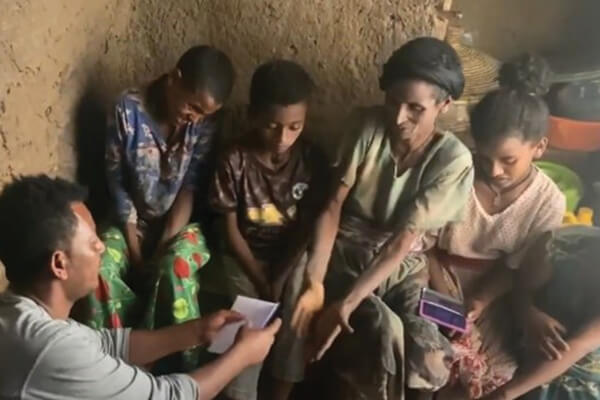
S.I. is income provided to older people and people with disabilities with no income. These groups are two of the major epicenters of extreme povery globally. The supplementary income is set above the extreme poverty level ensuring that recipients have both food and shelter. It also lifts people out of the social isolation they experience when they have to beg for food.
Healh Insurance 800+ people fully covered
Health insurance is provided to all recipients in the supplementary income program and recipients can add up to 4 additional family members to insurance policies
Hunger/Hot Meal Programs: 240 People Receive Full or Partial Daily Meals
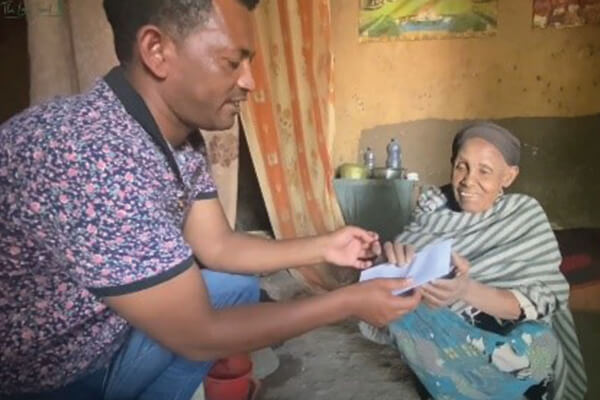
3 meals a day are provided to 40 people at a shelter for homeless elders, people with disabilities and orphaned children managed by the ethiopian orthodox church, a partner of the Lalibela project. After a sharp increase in hunger after the covid lockdown and civil conflict we added an additional 40 families who take the food away. Additionally 40+ students receive full food service at a local primary school. Many of the students have no families and are allowed to live in the school. An additional 40 people (these are refugees who fled the civil conflict in 2021) are fed at a location provided by the mayor’s office at the mayor’s request. The 80 people who take away the meals are estimated to share the food with at least one other family member making a total of 240 who receive food support.
School-Based and Other Educational Programs: 350 Students Receive Services
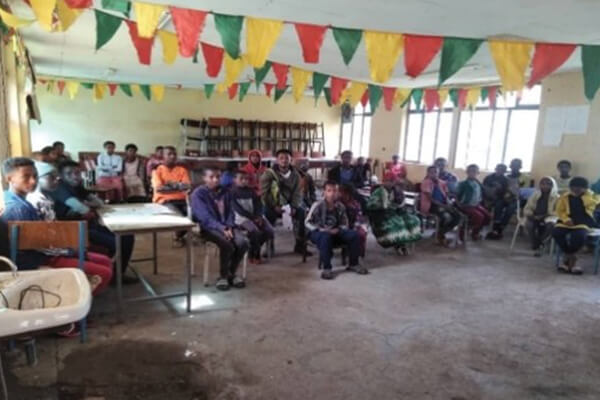
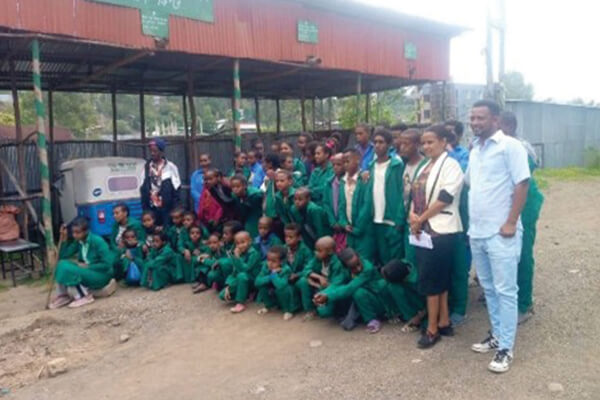
the Lalibela project works to ensure that everyone in Lalibela can graduate high school. Education is the main avenue to eliminate poverty in the long term. There are many barriers to getting an education for students and we try to address each one as we encounter it. We provide the meal service mentioned above (it is hard to study on an empty stomach!); we buy uniforms for children who don’t have the resources; we came across a group of students who would not go to school because they were getting bullied because they had no shoes (so we bought them shoes!); the project set up a large study group for students who walked 2 hours or more to and from school and could not study after dark (no electricity in many villages) and recruited 3 retired teachers to add value to their study time after donating a generator to a local school to provide a study space after dark; after finding out that 63% of men in prison are illiterate we hired 4 teachers to give basic classes and set up a library to practice reading at the request of the arch priest. There is more information on these and other programs you can get by emailing us.
Intergenerational Work/Study Program: 60 Students Assist 60 Frail Elders
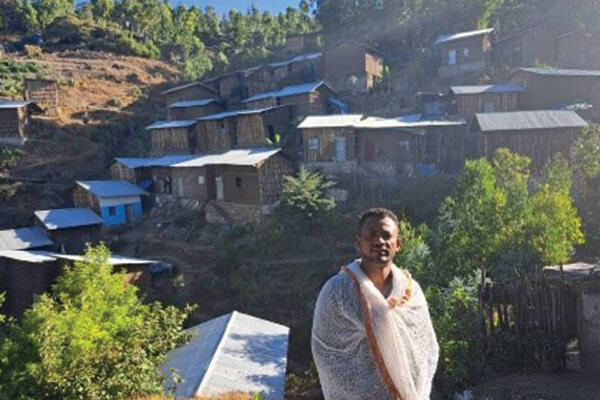
This is the most important of the school-based programs and addresses the needs of students who live too far away from school to be able to attend (some villages are over 20 miles away from the high school). for these students we offer an opportunity to live in the city close to the highschool. They receive a stipend which is enough for them to maintain them selves. In return they provide critical support for an older, frail person. The students get as much out of this as the older person, as they understand their value to others. It also builds a sense of responsibility. This is one of the three areas of intergenerational programming that is helping to strenghthen the community. Community and social development programs work better when the ties between generations are strengthened.
Older Volunteers Supporting Families Under Stress, and Retired Teachers Providing Educational Support
There are other programs the Lalibela project is involved in developing (such as the older volunteer program that provides support for families under stress and provides traditional conflict resolution services in several villages) and the teachers initiative which supports the prison program and an after-school tutoring program. Even the students are involved in other programs, such as the summer tree planting initiative (over 4,000 trees planted last year.
We will post more information when we get our social media going.
We are using an intergenerational social development model that can show how well it works for both social and economic development. Our social work methods are described under the “more info” button on the home page.
